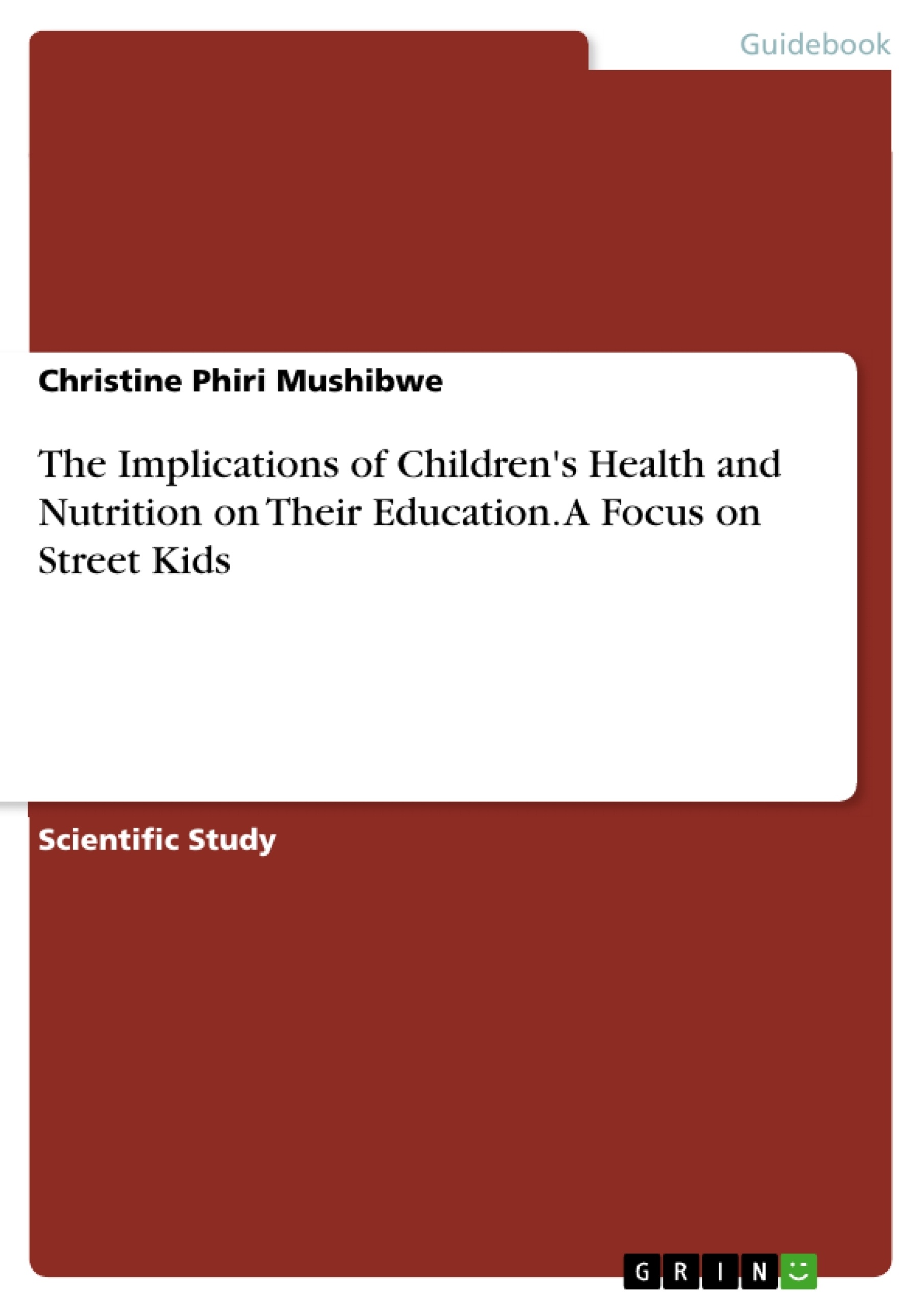Children are generally believed to be the future of any nation and their proper development is of significance to a healthy nation. However the situation of our street children in Zambia is a source of concern as numbers of unsupervised children taking to the streets seem to continuously grow. The trend on the major streets of Lusaka has seen increasing numbers of children leading visually impaired parents begging for alms, children cleaning cars for alms and those literally begging for alms and left over food. Such a saddening phenomenon is worth researching about as the youngest children are ranging from five to six years in age. The diet of these children is of great concern here. They eat anything they can lay their hands on as long as it is food without proper guidance from responsible adults. These children are supposed to be at home or in school and eating healthy to keep them away from the streets. This paper uses an exploratory approach to inductively explain the case of children’s health and nutrition on their Education. Specific focus is on the Street Kids as children that should not be left behind. Qualitative research methodologies will be employed to collect in-depth data that will then be analysed thematically.
Inhaltsverzeichnis (Table of Contents)
- Abstract
- Introduction
- The nutrition of the Disadvantaged Children on/of the Street and its implications
- Diagram 1: Ecological framework
Zielsetzung und Themenschwerpunkte (Objectives and Key Themes)
This paper explores the link between children's health and nutrition and their education, focusing specifically on disadvantaged children on the street in Zambia. The research aims to understand the reasons for these children's presence on the streets, their nutritional needs, and the impact of their circumstances on their educational opportunities.
- The impact of poor nutrition on the physical, mental, and emotional development of disadvantaged children on the street
- The importance of a caring environment in promoting good health and nutrition practices
- The role of social and ecological factors in influencing the lives of disadvantaged children
- The need to address the challenges faced by disadvantaged children and ensure they are not left behind in education
- The importance of providing nutritional support and educational opportunities to disadvantaged children
Zusammenfassung der Kapitel (Chapter Summaries)
The introduction highlights the growing concern about the number of unsupervised children on the streets of Zambia, particularly those aged five to six years old. The paper emphasizes the importance of a healthy diet for children's development and education, highlighting the need for support for parents of such children. The research questions focus on the origins, reasons, and daily needs of these children, as well as their experiences with education.
The chapter on the nutrition of disadvantaged children on the street discusses the prevalence of these children in Zambia and the challenges they face in terms of diet and access to nutritious food. The paper provides a definition of nutrition and explores the crucial role it plays in children's growth and development. The importance of a caring environment for promoting good health and nutrition practices is emphasized, highlighting the challenges faced by children living on the streets.
The ecological framework diagram illustrates the various systems that influence a child's development, including the microsystem, mesosystem, exosystem, and macrosystem. The paper provides a brief explanation of each system and its role in shaping a child's life.
Schlüsselwörter (Keywords)
The paper focuses on the challenges faced by disadvantaged children on the street in Zambia, highlighting the importance of nutrition, health, and education in their development. Key themes include the impact of poverty, lack of access to nutritious food, and the absence of a caring environment on the well-being of these children. The research explores the role of social and ecological factors in influencing their lives and advocates for interventions to support their educational and developmental needs.
- Arbeit zitieren
- Christine Phiri Mushibwe (Autor:in), 2014, The Implications of Children's Health and Nutrition on Their Education. A Focus on Street Kids, München, GRIN Verlag, https://www.grin.com/document/285246



